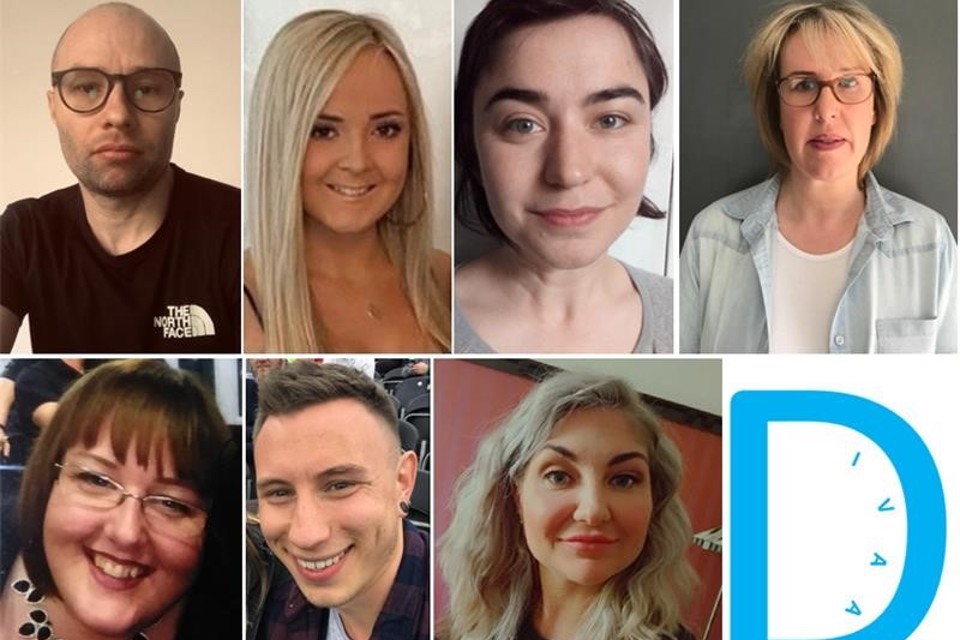
Ben Jaab discusses the challenges facing deaf colleagues in the Civil Service, and looks at the latest research and work underway to improve their working conditions.
In the UK, there are 10-11 million people who are deaf or hard of hearing (one in six). One in eight are affected by tinnitus. There are around 150,000 British Sign Language (BSL) users. Many more people are either relatives, friends or colleagues of those on the hearing spectrum.
Deaf BSL users please follow this link for a translation of the blog.
To mark the International Week of the Deaf People 20-26 September, the Civil Service Deaf and Hard of Hearing Network has teamed up with the Deaf: Inclusion, Visibility, Accessibility and Awareness (DIVAA) group to highlight our work to raise awareness and improve working conditions for deaf civil servants.
What is DIVAA?
DIVAA is a Future Leaders Academy group comprised of members from across different Civil Service departments. Richard Purvis was the first profoundly deaf colleague to participate as an academy delegate in England. As hearing members of society, our group had never experienced the difficulties raised by Richard.

We’d never had any training or awareness on how to best support our deaf colleagues. It was Richard and his interpreters who helped educate us - but should we have been better prepared before we met him? The weight of this question and Richard’s knowledge and experience motivated us to explore what resources were and are available across the Civil Service.
“The Future Leaders Academy is designed to facilitate collaborative working across government and encourages the sharing of good practice, especially with under-represented groups… by increasing awareness of the challenges deaf people face on a day-to-day basis, lobbying for equality and ensuring there is a community of support available.”
Anne-Marie Blackburn, Future Leaders Academy Coach & Facilitator
What has DIVAA done so far and discovered?

We created a survey focusing on the inclusion, visibility, accessibility, and awareness (IVAA) of the deaf community in the Civil Service. We then distributed it across the Civil Service networks. Asking over 20 questions, we aimed to find out what deaf colleagues felt was lacking or being done well to meet their needs; nearly 1,000 civil servants participated.
Importantly, questions were presented in written English and BSL, which is not the current norm in many all-staff surveys. The responses were astounding!
Our first analysis of the survey indicates:
◼︎63-85% of deaf colleagues feel little support by the management chain and only 3% of respondents feel deaf* people are equally represented across the entire Civil Service. DIVAA is working with CSDHHN to address these issues.
◼︎ 74% of all respondents have never attended a Civil Service event that provided a BSL interpreter.
◼︎ Only 14% of all respondents have ever received deaf awareness training, and of those who have trained, many received this several years ago.
We didn’t stop there. From the volume of responses, over half were happy to be included in further project participation. We asked those deaf colleagues and managers to participate in focus groups to explore their first-hand experiences.

One colleague explained that we need “greater visibility of deaf colleagues at all levels.” Whilst another stated, “There are big differences in approach between departments,” which may prevent colleagues from taking on new challenges. Most concerning was feedback around visibility, with one colleague sadly explaining that “It is embarrassing and humiliating to keep asking people to remember [my deafness].” Another told us, “Sometimes I feel I need to wear a big hat saying, ‘By the way… I’m still deaf!’”
How can we make things better?
If you work with a deaf colleague, good communication is key. Don’t assume you know what’s best – ask your deaf colleagues or the support networks.
The Civil Service Deaf and Hard of Hearing Network has good knowledge and resources, including support for managers working with deaf staff.
You can find out about Workplace Adjustment Passports in your home department’s HR and L&D handbook or by contacting the Workplace Adjustments team in the Cabinet Office.
Finally, if you’ve been inspired, we’d recommend the Civil Service Local Future Leaders Academy for the opportunity to meet people from all departments and walks of life. We have gained valuable skills and the chance to develop this project with the potential to implement a legacy of positive change. You could too!

The Civil Service Deaf and Hard of Hearing Network welcomes new members. Visit the network’s page on gov.uk to find out more.
Moving forward
Our work doesn’t stop here. We plan to continue supporting the Civil Service Deaf and Hard of Hearing Network. We will also liaise with other government departments to push for improvements and positive change. Watch this space!

10 comments
Comment by Liam Duell posted on
Excellent article and an important area
Comment by Ben Jaab posted on
Thank you for reading Liam, we really appreciate your feedback.
Comment by Christopher Wightman posted on
Great to see a project like this
A couple of corrections -
1 - There are approximately 150,000 BSL Users not 15,000.
2- There has been previous profoundly Deaf Delegates as I was one of them for the Northern Ireland and a couple of people before me.
It would be good to know what the group are planning to do next with the project as it is vital that this work carries on.
Comment by Ben Jaab posted on
Hi Christopher,
Thank you so much for taking the time to read the article, and for your interest in the project.
We appreciate you spotting the typo, this has now been amended, while I will seek to edit the article to make it clear that Richard was the first profoundly deaf academy delegate within the North East, Yorkshire and the Humber - it's also great to know that there have been deaf delegates in Northern Ireland, it would be fantastic to chat with their network if the opportunity arises!
We'll be publishing more blogs and updates through the CSDHHN newsletter and Twitter soon - watch this space!
Comment by Gavin Thomas posted on
Thank you Ben for looking to increase awareness on this very important issue.
I am aware of some of my colleagues who since working from home have had to find ways to be able to participate in virtual meetings on Teams.
I am also aware that a number of colleagues have expressed their challenge of being able to engage in a conversation with others when they were out and about and everyone was required to wear a mask.
It has certainly made me reflect on the way that I communicate with others, and I am now planning to try to learn sign language, so that I can become more inclusive.
Comment by Ben Jaab posted on
Hi Gavin,
Thank you for this feedback. Over the last 18 months, there have definitely been some positive updates to MS Teams and other video conferencing software, however we know there is still some way to go. The pandemic has certainly highlighted and exacerbated a lot of accessibility issues for our deaf colleagues.
It is great to hear that you are planning on learning BSL, I hope that you enjoy it and that it helps you to communicate with colleagues in what may be their first language!
Comment by Ian Goodwin-Reeves posted on
I have a question, across the Civil Service and the military environs, how many Deaf related pages and groups online ?
Comment by Ben Jaab posted on
Hi Ian,
Thank you for your comment.
Polina's reply above may provide an answer to your question but, just for some additional context, there's not a formal record of the number of networks across all departments unfortunately, so it would be difficult to say how many networks and pages are in existence across either the Civil Service or military.
From our experience, most large departments will have their own deaf and hard of hearing network which should be accessible through departmental intranet. If your department uses MS Teams, it may also be useful to search for Teams pages for deaf networks.
I hope that helps and thank you again for reading.
Comment by Ian Goodwin-Reeves posted on
Just a short observation with regards to the 'Deaf BSL users please follow this link for a translation of the blog.'
If you do try to connect you will probably get this message ....
Content blocked in accordance with MOD web filtering policy
Comment by Polina Cowley posted on
Thank you for highlighting the technical issue of the broken link to the BSL translation. CSDHHN will look into it.
There is only 1 cross-departmental Deaf and Hard of Hearing network, CSDHHN.
MoD has its own internal network Deaf and Hard of Hearing network, please refer to your intranet information.
CSDHHN is collaborating with all internal Deaf and Hard of Hearing networks.